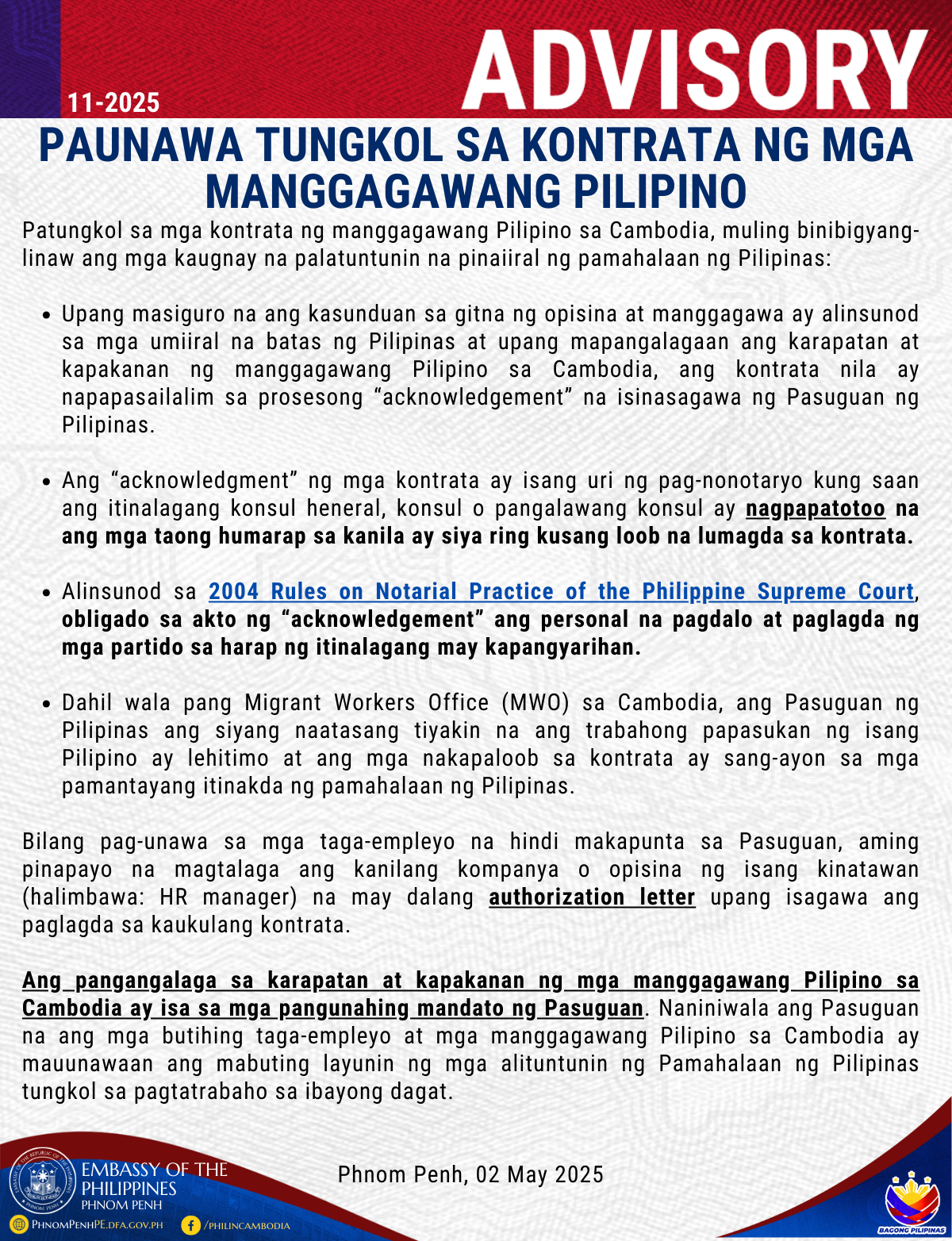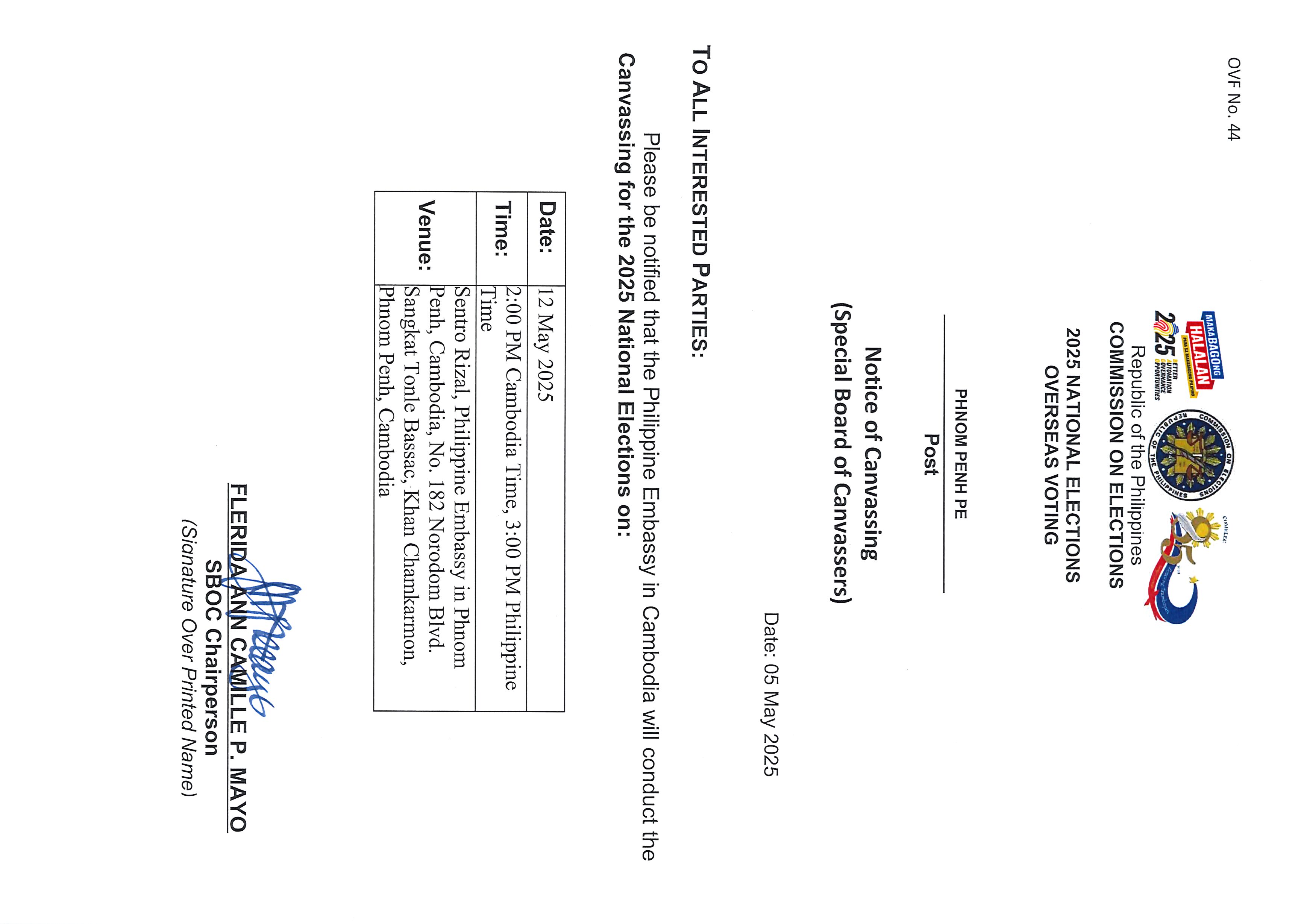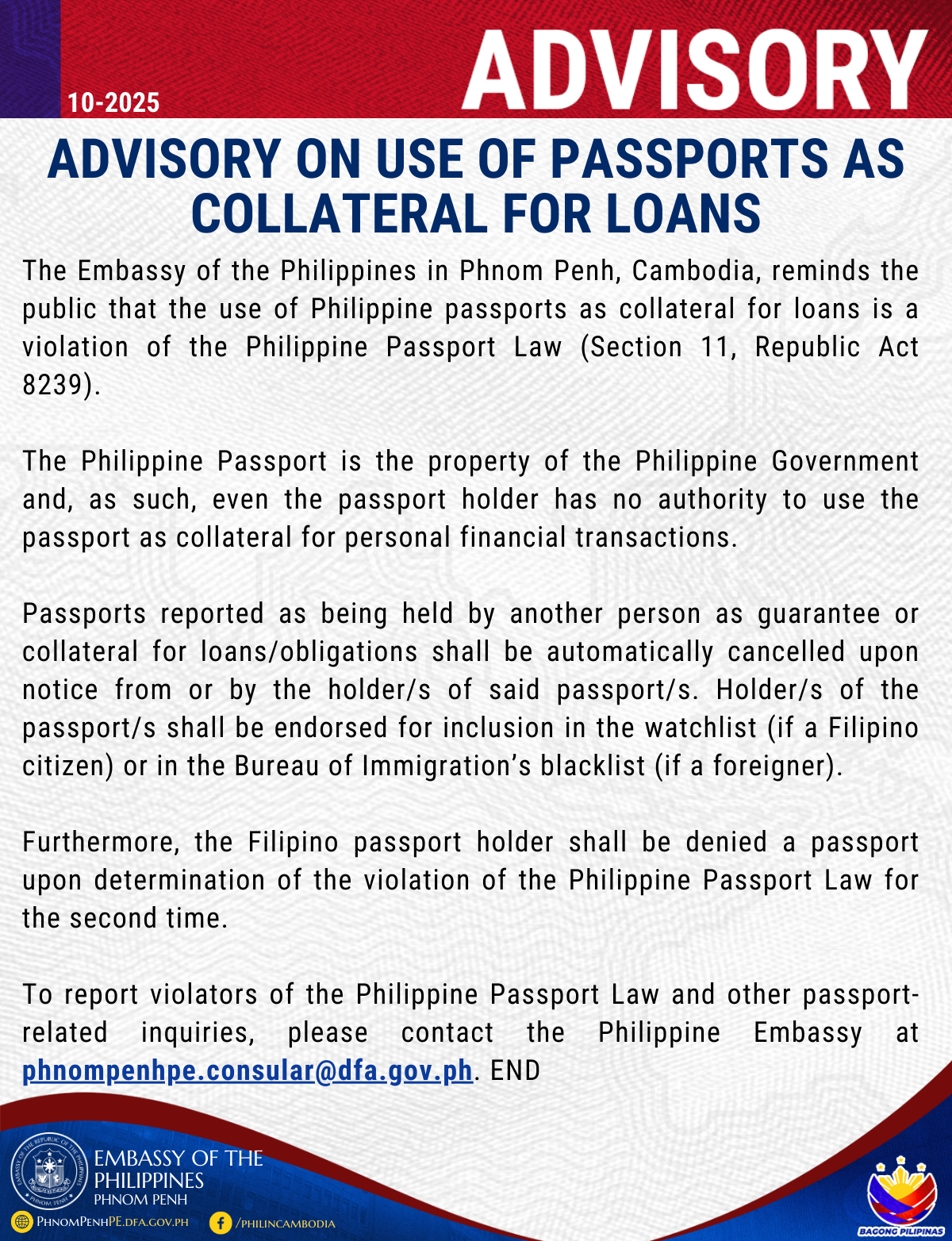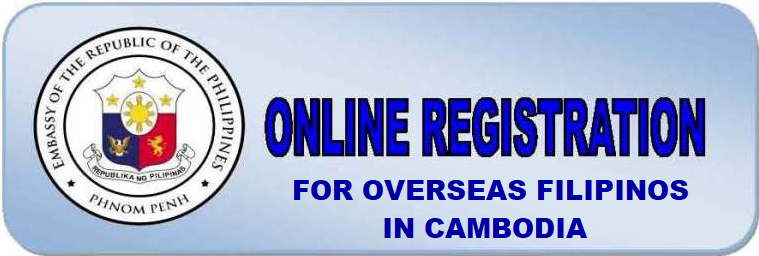
Patungkol sa mga kontrata ng manggagawang Pilipino sa Cambodia, muling binibigyang-linaw ang mga kaugnay na palatuntunin na pinaiiral ng pamahalaan ng Pilipinas:
- Upang masiguro na ang kasunduan sa gitna ng opisina at manggagawa ay alinsunod sa mga umiiral na batas ng Pilipinas at upang mapangalagaan ang karapatan at kapakanan ng manggagawang Pilipino sa Cambodia, ang kontrata nila ay napapasailalim sa prosesong “acknowledgement” na isinasagawa ng Pasuguan ng Pilipinas.
- Ang “acknowledgment” ng mga kontrata ay isang uri ng pag-nonotaryo kung saan ang itinalagang konsul heneral, konsul o pangalawang konsul ay nagpapatotoo na ang mga taong humarap sa kanila ay siya ring kusang loob na lumagda sa kontrata.
- Alinsunod sa 2004 Rules on Notarial Practice of the Philippine Supreme Court, obligado sa akto ng “acknowledgement” ang personal na pagdalo at paglagda ng mga partido sa harap ng itinalagang may kapangyarihan.
- Dahil wala pang Migrant Workers Office (MWO) sa Cambodia, ang Pasuguan ng Pilipinas ang siyang naatasang tiyakin na ang trabahong papasukan ng isang Pilipino ay lehitimo at ang mga nakapaloob sa kontrata ay sang-ayon sa mga pamantayang itinakda ng pamahalaan ng Pilipinas.
Bilang pag-unawa sa mga taga-empleyo na hindi makapunta sa Pasuguan, aming pinapayo na magtalaga ang kanilang kompanya o opisina ng isang kinatawan (halimbawa: HR manager) na may dalang authorization letter upang isagawa ang paglagda sa kaukulang kontrata.
Ang pangangalaga sa karapatan at kapakanan ng mga manggagawang Pilipino sa Cambodia ay isa sa mga pangunahing mandato ng Pasuguan. Naniniwala ang Pasuguan na ang mga butihing taga-empleyo at mga manggagawang Pilipino sa Cambodia ay mauunawaan ang mabuting layunin ng mga alituntunin ng Pamahalaan ng Pilipinas tungkol sa pagtatrabaho sa ibayong dagat.

The Philippine Embassy in Cambodia reminds the public of the following policies of the Philippine government in relation to acknowledging employment contracts of Overseas Filipinos in Cambodia:
- Acknowledgment of employment contracts is a form of notarization where the duly authorized and commissioned consular officer of the Republic of the Philippines confirms the signatory/ies of the contracting parties, affirms their identities, and verifies that the execution of the document was the signatories’ free act, will, and deed.
- As with any notarial act, the acknowledgment of employment contracts requires, at all times, the personal appearance of all signatories before a consular officer (2004 Rules on Notarial Practice of the Philippine Supreme Court).
- In the absence of a Migrant Workers Office (MWO) in Cambodia, the Philippine Embassy is also responsible for ensuring that the employment or work contracts of Overseas Filipinos in Cambodia comply with the minimum requirements of employment and are consistent with standards and practices set forth by the Philippine government.
With respect to the inability of employers to appear before a consular official to personally sign the document, the Embassy, in consideration of local conditions and as a matter of existing practice, accepts authorization letters from employers for their duly-designated company representative (i.e. HR manager) to personally appear at the Embassy in the employer’s stead for the signing of the employment contract of the Filipino employee.
Protecting the rights and upholding the welfare of Overseas Filipinos is a core mandate of the Embassy. The Embassy, therefore, expects employers of Filipino workers in Cambodia to fully abide by the Philippine government’s rules and regulations on overseas employment. END


The Embassy of the Philippines in Phnom Penh, Cambodia, reminds the public that the use of Philippine passports as collateral for loans is a violation of the Philippine Passport Law (Section 11, Republic Act 8239).
The Philippine Passport is the property of the Philippine Government and, as such, even the passport holder has no authority to use the passport as collateral for personal financial transactions.
Passports reported as being held by another person as guarantee or collateral for loans/obligations shall be automatically cancelled upon notice from or by the holder/s of said passport/s. Holder/s of the passport/s shall be endorsed for inclusion in the watchlist (if a Filipino citizen) or in the Bureau of Immigration’s blacklist (if a foreigner).
Furthermore, the Filipino passport holder shall be denied a passport upon determination of the violation of the Philippine Passport Law for the second time.
To report violators of the Philippine Passport Law and other passport-related inquiries, please contact the Philippine Embassy at This email address is being protected from spambots. You need JavaScript enabled to view it.. END





















